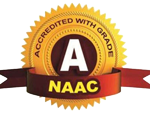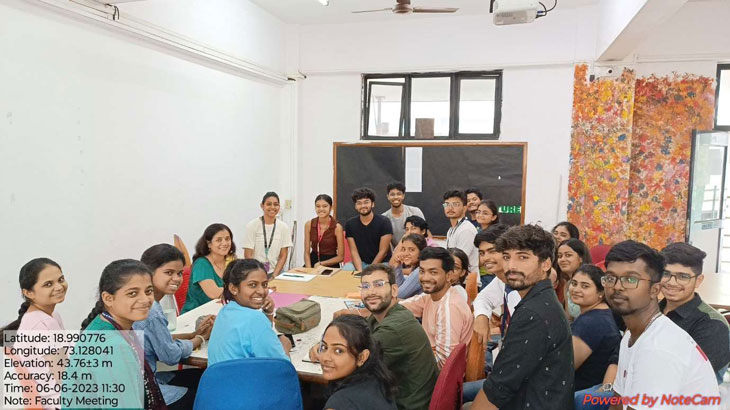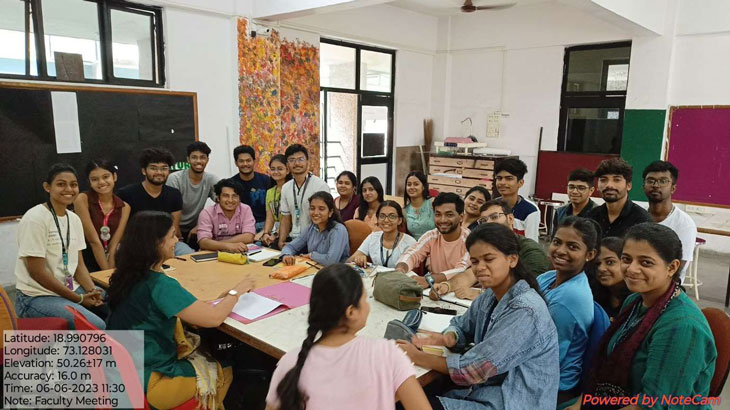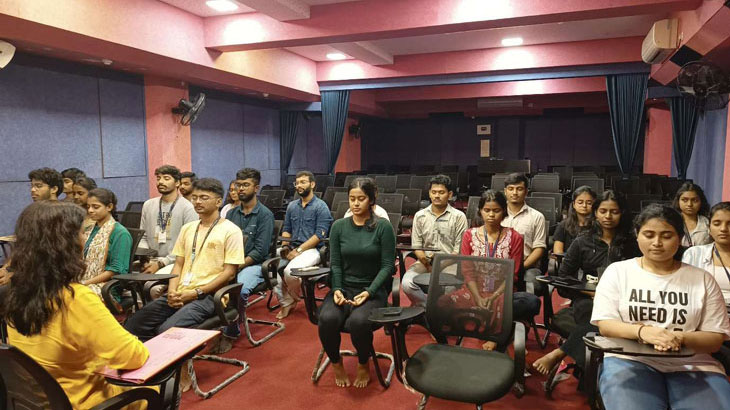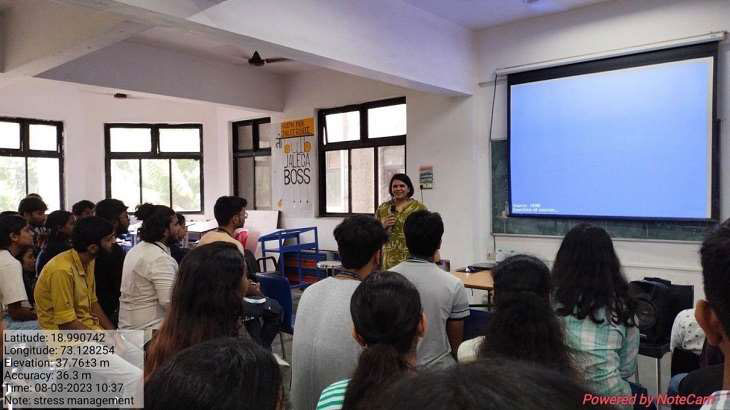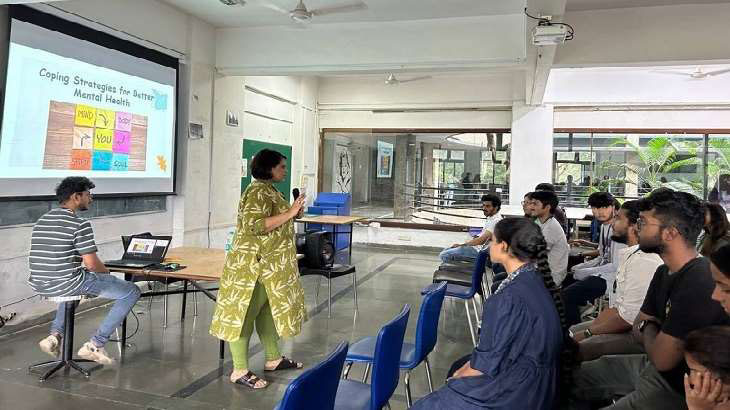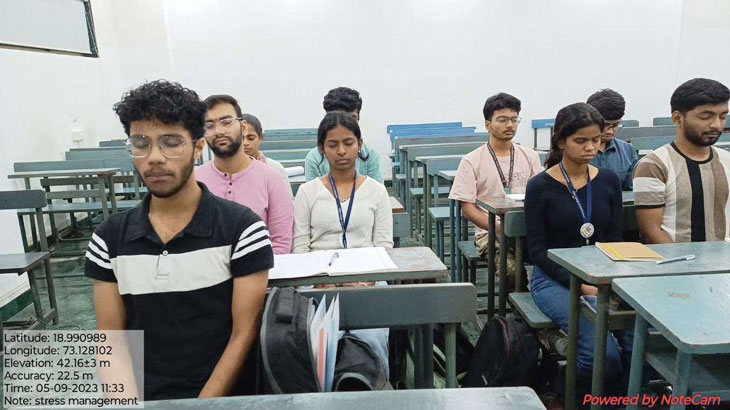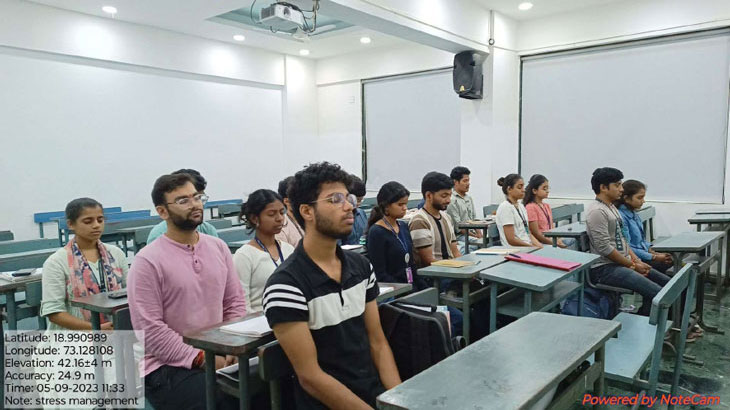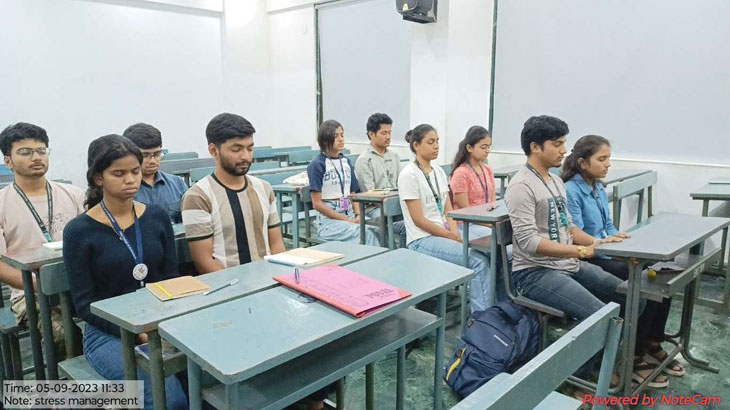Aim:
To empower architecture students with tools and methodologies that help in managing stress effectively, thus enabling them to maintain mental well-being and achieve academic excellence.
Objectives:
- Understand the nature, causes, and implications of stress in academic environments.
- Learn and practice mindfulness, meditation, and breathing techniques.
- Create an environment where students can openly share personal experiences related to stress.
- Highlight the role of gratitude and a positive outlook in combating stress.
- Instill a habit of maintaining a diary for introspection and tracking one’s mental well-being.
The workshop is a comprehensive, interactive, and immersive 5-day program designed exclusively for architecture students. It aims to address the unique challenges they face in their academic journey. Students will be introduced to holistic approaches that not only deal with stress but also enhance overall mental health. With a blend of theoretical discourses and hands-on sessions, participants will be equipped with tangible skills they can use throughout their lives.
Day 1: Laying the Foundation
Morning Session: Understanding Stress
The workshop commenced with Dr. Sudnya Mahimkar introducing the participants to the complex landscape of stress. She elaborated on its multidimensional nature, highlighting the physiological, psychological, and emotional facets of stress. The discussion was anchored in the academic context, making it highly relevant to the student attendees. Following this, a group discussion was facilitated, wherein students delved deep into identifying their individual stress triggers. The collective realization that everyone grapples with stress in some form or another created a comforting sense of camaraderie among participants. The session concluded with students receiving their personal diaries. Dr. Mahimkar underscored the therapeutic benefits of journaling, emphasizing its role as a tool for introspection and reflection.
Afternoon Session: Personal Narratives & Breathing Techniques
The atmosphere was charged with vulnerability as students took turns sharing their personal experiences with stress. Narratives ranged from project pressures to interpersonal conflicts with peers, giving everyone a comprehensive understanding of the multifaceted origins of academic stress. Dr. Mahimkar then shifted the mood by introducing the group to deep breathing exercises. With meticulous guidance, she demonstrated how simple inhalations and exhalations could profoundly impact the nervous system, offering instant relief from acute stressors. The day wrapped up with the “Counting the Blessings” activity, prompting students to reflect upon and acknowledge the positive aspects of their lives.
Day 2: Exploring Mindfulness
Morning Session: Introduction to Mindfulness
Dr. Mahimkar initiated the discourse by defining mindfulness, emphasizing its roots in being present and fully experiencing the moment. She elucidated the cognitive benefits, such as enhanced concentration and reduced anxiety, particularly relevant to students. Following the discourse, a serene meditation session was conducted, guiding students to center themselves, fostering a deep sense of inner calm and awareness.
Afternoon Session: Engaging with Mindfulness
After lunch, students reconvened, sharing their meditation experiences. Many expressed feeling lighter and more grounded. The group was then divided into smaller clusters for a series of mindfulness exercises. These included activities like mindful walking, where each step was taken with full awareness, and mindful eating, transforming a mundane activity into a profound experience of taste, texture, and gratitude. The day ended with diary reflections, where students noted their personal insights and observations from the day’s sessions.
Day 3: Cultivating Positivity
Morning Session: Breathing, Meditation, and Its Impact on Positivity
Dr. Mahimkar began the day by delving into the intricacies of controlled breathing. Students practiced various techniques, observing the immediate tranquilizing effects on their minds. The nexus between controlled breathing, clear thinking, and reduced anxiety was elaborated upon. Transitioning smoothly, she introduced meditation and its myriad benefits. Students realized the significance of meditation further realizing its role as a complementary tool with controlled breathing in fostering positivity.
Afternoon Session: Gratitude in Practice
The group engaged in a profound discussion on the role of gratitude in mental well-being. Dr. Mahimkar explained the neurochemical reactions associated with gratitude and how they combat feelings of stress and anxiety. The session peaked with the creation of a “Gratitude Wall”, with students penning down moments, big and small, for which they were grateful. Diary reflection time allowed students to internalize the day’s lessons and insights.
Day 4: Delving into the Psychological Aspect
Morning Session: Psychological Underpinnings of Stress
Ms. Yvette Lee began by exploring stress from a psychological lens. She emphasized the body’s physiological responses and the long-term impacts of chronic stress on mental health. Tailoring her discourse to the academic environment, she highlighted common stressors like deadlines, peer competition, and the pressure of maintaining grades.
Afternoon Session: Coping Mechanisms
Post lunch, Ms. Lee transitioned into discussing strategies to combat stress. Drawing from cognitive behavioral therapy and positive psychology, she introduced techniques like reframing negative thought patterns and the significance of positive affirmations. Role-playing activities were the highlight, simulating real-life stressful scenarios. Students practiced their newly acquired coping techniques in these simulations, gaining confidence in their ability to manage real-world stressors.
Day 5: Tying it All Together
Morning Session: Reflections and Reviews
The final day began with a recapitulation of the week’s teachings. Students shared their key takeaways, techniques they found most effective, and personal anecdotes of implementing their learnings in real-life scenarios.
Afternoon Session: Charting the Way Forward
The concluding session, facilitated by Dr. Mahimkar, was dedicated to ensuring the sustainability of the practices imbibed during the workshop. A guided meditation reinforced the techniques learned, while the closing discourse provided students with a roadmap to integrate these practices into their daily routines.
Conclusion
In summary, this workshop was an immersive journey from understanding stress to actively implementing strategies to combat it. Through a blend of theory, practice, and personal reflection, each participant emerged equipped with tools to navigate the challenges of their academic and personal lives with resilience and grace.


